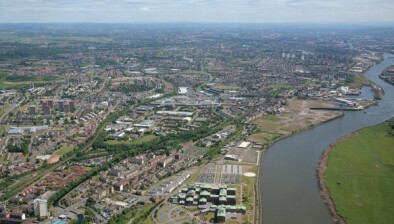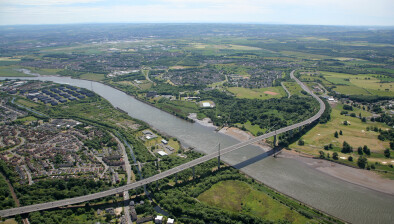Historic mine workings causes Clydebank road to collapse
 The collapse of a road in Clydebank has been attributed to historic mine workings buried deep underground, specialist engineers have confirmed.
The collapse of a road in Clydebank has been attributed to historic mine workings buried deep underground, specialist engineers have confirmed.
West Dunbartonshire Council called in the Coal Authority after a large deep hole appeared on the Kilbowie Road earlier this month.
Detailed assessments of the site have uncovered a six-metre deep cavity lying underground on top of a 56-metre deep shaft. Overall the shaft, which measured 3.5 metres by two metres, drops to a depth of 62 metres from the road.
The council has now started reinstatement work at the site, including all associated works. A reinstatement programme will also be produced by the Coal Authority, which will outline the detail of the structural works required and a timescale for the remediation works.
Michael Owens, principal project manager for the Coal Authority, said: “After extensive investigations conducted by the Coal Authority, we can confirm that an unrecorded mineshaft that was historically used to extract limestone, iron ore and coal has been found.
“Work has now started to reinstate the shaft and the Coal Authority will be working with West Dunbartonshire Council to ensure the restoration of Kilbowie Road in a safe and timely manner.”
Ronnie Dinnie, the council’s strategic lead for environment and neighbourhood, added: “Once the reinstatement programme is prepared, and we receive this from the Coal Authority, we will be in a position to confirm the timescale of these works and how long the roads will remain closed.
“This is the biggest collapse we have encountered on one of our roads and it’s important that the right solution is put in place to ensure safety now and in the future. The Coal authority’s remediation works will deliver that.”
















